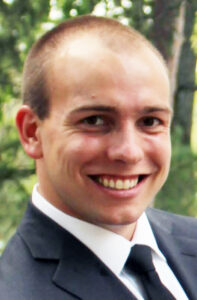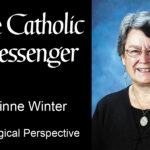(This is the third in a series of six articles by Patrick Schmadeke)
Politics and faith are frequently subject to ideological distortions. Neither should degenerate into fundamentalism on the one hand or relativism on the other. Done well, faith and politics sustain the tension of the ongoing uncertainty embedded in the human condition. We will never have the perfect form of government that always and everywhere recognizes the dignity of humanity and creation. Nor will we ever have the perfect and fullest theological articulation of the mystery of God.

Yet, both faith and politics share principles that keep us headed in the right direction. These include the principles of Catholic Social Teaching and natural law.
Natural law might be the most confused principle of Catholic ethics, if for no other reason than efforts to get natural law to “say” things it doesn’t actually say. Natural law is not a list of what’s right and wrong. It is a framework that facilitates a dynamic relationship between a primary moral principle and the concrete instantiation of that principle. The primary principle, according to St. Thomas Aquinas, is: “good is to be done and to be pursued and evil is to be avoided. All other precepts of the natural law are based upon this.” (ST I.II.94.2).
Political realities evolve as quickly as the state of the body-politic evolves. Our politics, ever in flux, require ongoing discernment. This discernment is aided by natural law because the concrete instantiation of the primary principle will change over time and space. The best strategy to mitigate environmental degradation, resolve poverty and create better educational systems, for example, will look different based on context. To be sure, there are overlapping best practices, but rarely cookie-cutter solutions to the moral problems of life.
The four principles of Catholic Social Teaching are also helpful for political discernment. These are: the common good, solidarity, subsidiarity and the dignity of the human person.
The common good is “the sum of those conditions of social life which allow social groups and their individual members relatively thorough and ready access to their own fulfillment” (Gaudium et Spes #26). At the most basic level, this includes reasonable access to food, water, education, work, healthcare and shelter.
The principle of solidarity recognizes that we are inherently social creatures. Contrary to the modern myth of individualism, we depend on each other and flourish in relationships of mutuality. This is as true between a husband and wife as it is between rich and poor, even if the latter is less frequently lived out. We are all one in Christ, and “if one part suffers, all the parts suffer with it” (1 Corinthians 12:26).
The principle of subsidiarity involves a dynamic balance of local and higher authority. In the first place, decisions should be made by those in the most immediate proximity to the issue at hand. However, if the most local authority is unable to resolve the issue, then those at higher levels of authority have a responsibility to help. This principle is of constant relevance to the political realm, which attempts to negotiate the balance of who should be exercising authority with respect to any given issue.
The principle of the dignity of the human person reflects that humans are created in the image and likeness of God. Though sin has distorted this image, the inherent dignity of the human person cannot be taken away. When persons do not recognize their own dignity (which happens on every occasion of sin), we are called all the more to affirm the dignity that is rightly theirs. This looks less like commanding to a standard (“pull yourself up by your bootstraps”), and more like inviting into an attractive life of holy joy.
Though these principles are important to distinguish, they are inseparable. They can help politics and faith speak to each other. Not in the trite or headline-making sound bites, but in the substantive, unglamorous and fulfilling process of communal discernment. Helpful to such communal discernment is clarity about the distinct projects of politics and theology, and why they sometimes come into conflict. This will be the topic of the next article.
(Editor’s note: Patrick Schmadeke is a graduate of St. Ambrose University (‘13) and a student in the Master of Divinity program at the University of Notre Dame.)











